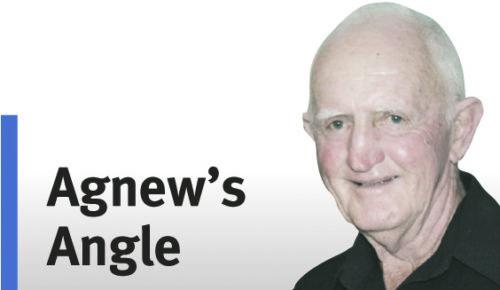
“Make love – not war ,” was the chant of the long-haired hippies and others opposed to America, Australia and New Zealand’s involvement in the Vietnam War.
“Play sport -not war,” would also be an apt call personified most recently by the warm reception Americans gave Japanese golfer Hideki Matsuyama upon winning The Masters.
For many years after World War II, Japanese were despised for the atrocities, they inflicted upon enemy soldiers in their concentration camps.
Double VC Charles Upham was also said to have kicked a reporter off his Canterbury farm because he had arrived for an interview driving a German car.
Today, Japanese and German cars are popular throughout a world that, over the years, has grown friendly to old enemies.
Sport, I believe, has played a huge part in this change although, sometimes, athletes have been made political scapegoats on the biggest stages.
That was the case at the 1972 Munich Olympics when 11 Israelis were killed by terrorists.
Also, the 1976 Montreal Olympics when 26 countries boycotted it after failing to have New Zealand kicked out for sending their All Blacks to play rugby in apartheid South Africa.
Such was the ignorance relating to that episode that one Montreal newspaper claimed the reason for the boycott was because “New Zealand sent their blacks to South Africa.”
Again, sportspeople were the scapegoats when New Zealand followed the United States and other countries in boycotting the 1980 Moscow Olympics.
The Soviet Union’s tit-for-tat response was to boycott the 1984 Los Angeles Olympics.
Generally, however, despite a strong sense of nationalism, sport has cemented friendships between countries rather than fragment them.
Sprinter and long jumper Jesse Owens momentarily overcome the American racial divide when he exposed the myth of Aryan superiority before Adolf Hitler at the 1936 Berlin Olympics by winning four gold medals.
Meanwhile, next year’s 12-team Super Rugby championship between five Australian and New Zealand franchises and one each from Moana Pasifika and Fijian Drua should enliven the competition and bring justice to South Pacific players who have contributed immensely to the All Blacks’ success.
If the amazing vocal, flag-waving support given the Tongan rugby league team is an indication, it should ensure full house home crowds at Mt Smart for the Samoan and Tongan Moana Pasifika team.
With World Rugby committing $2.3 million annually to helping the two Pacific Island franchises build their business case, it’s nice to see the little brothers finally receive some of the recognition they so richly deserve.
No less than 80 per cent of the players in the two Pacific teams will have to be eligible or have played for Samoa, Tonga or Fiji.
Whether others from existing New Zealand and Australian franchises sign up with the newcomers is yet to be seen although the possibility exists following the decision of some star Kiwi league players to switch their allegiance to Tonga.
Meanwhile with the Queensland Reds and Brumbies leading the way in Australian Super Rugby and playing a fast, slick passing game, the All Blacks could find coach Dave Rennie’s Wallabies a genuine threat this year.
Into his second year as national coach, Rennie is a smart cookie who will know that with the exception of hookers Codie Taylor and Dane Coles, New Zealand’s tight five lacks the power and punch it once did.
- Ivan Agnew is an award-winning sports writer








